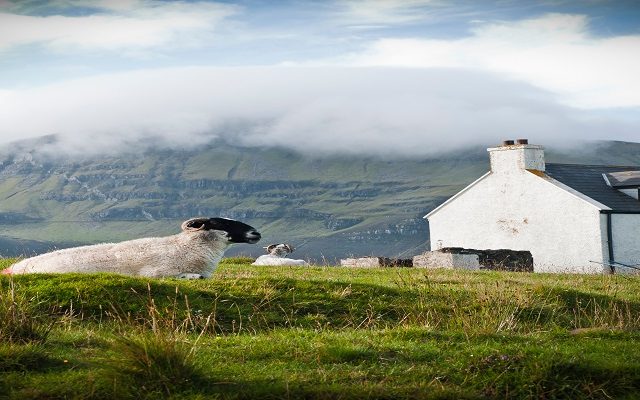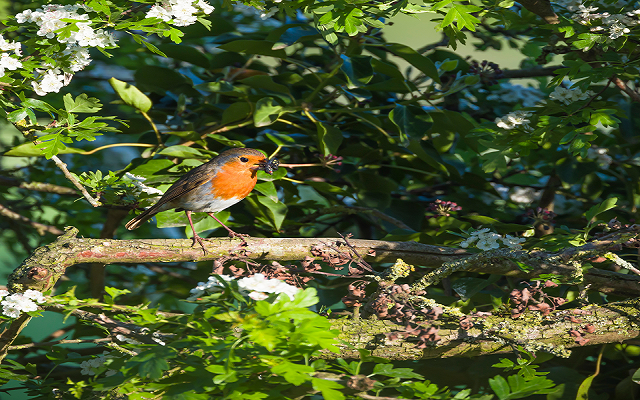Land Business Update | Week commencing 3rd June 2019
Welcome to our update on key land management, farming, planning and energy issues.
Farming
2019 cereal harvest in Europe is expected to be almost 7% higher than last year’s
Both wheat and barley harvests are expected to be higher, due to the greater areas grown and higher yields in Germany, France, the UK, Poland and Scandinavia, according to the first forecasts from COCERAL. Oilseed rape production is expected to fall by 6% while the maize crop is similar to 2018’s.
Migration Advisory Committee does not include farming on list of industries with labour shortages
The MAC justified the omission by saying that its report only considered the current immigration system (and remember that the Seasonal Agricultural Workers Scheme, or SAWS, ended in 2013). The NFU has reacted furiously, saying that MAC had failed to recognise the needs of the farming industry and that its consultation events were poorly planned.
European Commission publishes proposals to increase price transparency in farming
Under the welcome proposals, each Member State will collect data on prices and how markets are functioning, which will be collated, published and monitored by the Commission. This is the third piece of the ‘fairness jigsaw’, and follows proposals on unfair trading practices. The hope is that more transparency supports better business decisions and increases fair dealing in the food chain.
European Parliament could swing towards the environment after the European elections
With green party politicians and the Alliance of Liberals and Democrats making gains in the European Parliament and potentially holding the balance of power, it will be interesting to see whether the Parliament moves to a more environment and climate focussed position, from what has been perceived as a ‘pro-farmer’ position – fighting to retain a healthy CAP budget and more farmer-friendly environmental measures.
Natural Capital Committee report critical of Government’s failure to provide a soils strategy for England in 25 YEP
The Committee makes the case that soil should be given equivalent focus as air and water in the 25-year environment plan (25 YEP). The Committee recommends that soils should be incorporated into any future environmental land management scheme to encourage beneficial practices – including those that reduce climate change, increase biodiversity, avoid soil erosion and increase water holding capacity; and that a national survey should be undertaken to determine the state of soils in England, from which a comprehensive suite of policies and funded actions should be developed.
Controversy over report that the European Commission requested and then tried to suppress
The report, called Evaluation study of the impact of the CAP on climate change & greenhouse gas emissions, was only released following a freedom of information request from WWF (not the wrestlers). It says that GHG emissions from farming are rising and that EU farm policy does not give Member States suitable tools to deal with the problem, particularly in relation to livestock and crop management. The Commission has responded by saying that proposals for the CAP post-2020 give Member States the flexibility to design their own plans to achieve EU environmental and climate objectives. Greenpeace has accused the Commission of failing to tackle the detrimental role that the overproduction of meat and dairy plays.
Environment
Assurances for an Environment Act
A large group of representative bodies, including the CLA, CBI and the Wildlife Trusts, has signed a document on the assurances it wants from the government on how the Environment Act will operate. It is well worth a read and sets out very clearly seven objectives – the most significant of which are a ‘non-regression’ requirement to maintain or where appropriate enhance the level of environmental outcomes provided by existing UK, regional and global law, regulation and practices. Also, a participatory process with business and civil society to set quantified targets in law within two years which define the objectives in more detail, with milestones every five years. It also calls for environmental net gain for new development, which is broader than the Government’s proposed narrower concept of biodiversity net gain. The Natural Capital Committee’s recent report on this subject also calls for a wider approach as the natural environment is an interconnected system, in which a change to one element inevitably affects the whole system and so it is vital that the wider system and outcomes are considered.
Forestry
Forestry Commission’s Resilience Garden at the Chelsea Flower Show
One of the purposes of the Garden is to get visitors to think more broadly about species diversity, including non-indigenous species, and climate change. Species in the Garden include a monkey puzzle, which can withstand almost any soil type; a ginkgo, which is extremely hardy; a giant redwood; a black walnut; and a prickly pear cactus. The Forestry Commission, which is 100 years old this year, has done a lot of work on adaptation to climate change, including on what is called ‘assisted migration’, which supplements species of local provenance with species that originate from 2 to 5 degrees latitude south, that are from a similar altitude and distance from the Atlantic Ocean. See the Forestry Commission’s webpages on tree species and provenance.
EU ‘shares responsibility’ for global deforestation
Another report, this time from the European Commission and still subject to change, says that around 80% of deforestation in tropical areas is due to the expansion of land used for agriculture. The report acknowledges that the EU ‘shares responsibility’ for global deforestation, due to the products we consume from those areas, and sets out five priorities to stop global forest cover loss by 2030.
Residential
Survey shows what services and facilities tenants would like from their rented home
The survey of 3,572 renters asked which services they would be willing to pay extra for, over their rent. Top of the list is allowing pets, followed by high speed internet, parking and a garden. The top ten also included house cleaning services, parcel collection / on site drop box, bike storage and on-site management. The most popular communal facility tenants wanted was an on-site gym.






